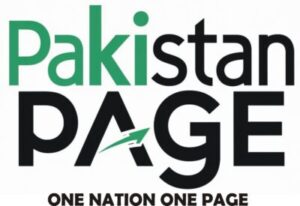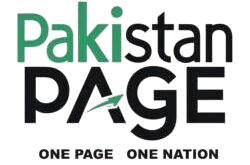Islamabad: The Pakistan’s health minister during his budget speech asked for bold fiscal policies to advance government’s narrative “prevention is better than cure” demanding 50% federal excise duty on all type of sugary rinks to help reduce risk factors of NCDs. He said “every single minute, a heart attack is occurring is Pakistan, and we are globally ranked top in prevalence of diabetes. If we failed to take policy measure to support our public health priorities, there would be a public health and economic disaster”.
Earlier during the meeting of National Standing Committee on Finance, several of the parliamentarians asked finance minister to consider increasing taxes on sugary drinks and ultra-processed junk foods, instead of solar panels. Pakistan is on the brink of a major health crisis, with over 1,100 deaths occurring daily due to diabetes and its complications, over 300 limbs amputated, and the country is facing a national health emergency. This alarming situation demands urgent and evidence-based policy action from the government.
Scientific research has consistently linked the consumption of sugary drinks and ultra-processed food products to the rising prevalence of obesity and non-communicable diseases (NCDs), including heart disease, stroke, type 2 diabetes, and kidney disease in Pakistan. These products are typically high in sugar, sodium, and unhealthy fats, while offering minimal to no nutritional value—contributing significantly to health complications. The economic cost of inaction is immense. Managing diabetes alone costs Pakistan more than $2.6 billion annually. The average economic loss per patient with type 2 diabetes are approximately $740 per year—almost half the per capita income of a typical Pakistani. Furthermore, economic losses due to premature deaths from NCDs between 2010 and 2025 are projected to range from $358 billion to $862 billion. These figures reflect the urgent need for strong preventive health policies.
Contrary to industry claims, the growing market of ultra-processed foods—valued at nearly USD 5.7 billion in 2020 and projected to reach USD 6.9 billion by 2025—demands immediate policy attention. With ultra-processed product sales increasing by 10% annually and the fast-food sector growing at 15% per year, the scale of processed food consumption in Pakistan cannot be ignored.
Mr. Sana Ullah Ghumman, General Secretary of the Pakistan National Heart Association (PANAH) said that increasing taxes on sugary drinks and ultra-processed products is a proven strategy to reduce their consumption—particularly among youth and lower-income populations, who are most vulnerable. He emphasized that the revenue generated from such taxes can be allocated toward public health and nutrition programs, helping offset rising healthcare costs.
Mr. Ghumman criticized the beverage industry for misleading the policy makers by quoting packaged fruit juices as “healthy,” despite scientific evidence showing that these products often contain sugar levels equal to or exceeding those found in carbonated soft drinks and other sweetened beverages.
Mr. Ghumman further stated that the fruit juice industry uses only a small percentage of the country’s total fruit production for pulp—estimated at less than 2%. He dismissed the notion that reduced pulp demand from the beverage industry would impact fruit farmers, asserting that healthy fruits are being turned into unhealthy products through processing. Mr. Ghumman argued that Pakistan already has lower taxes and prices on juices compared to many international markets. He cited global evidence showing that implementing taxes on sugary drinks, juices, and packaged junk foods does not lead to job losses or negative economic impacts. Instead, countries such as Mexico, Chile, Peru, South Africa, and the United Kingdom have witnessed reduced consumption of unhealthy foods, improved dietary habits, and long-term health gains as a result of such policies.
Mr. Ghumman concluded by emphasizing that taxing ultra-processed products can generate significant revenue, which should be reinvested into public health and development initiatives. He called on the government to prioritize public health by increasing taxes on sugary drinks to 50% and enacting 20% federal excise duty on solid category of ultra-processed foods, in line with the recommendations of the Ministry of National Health Services, Regulations, and Coordination.

